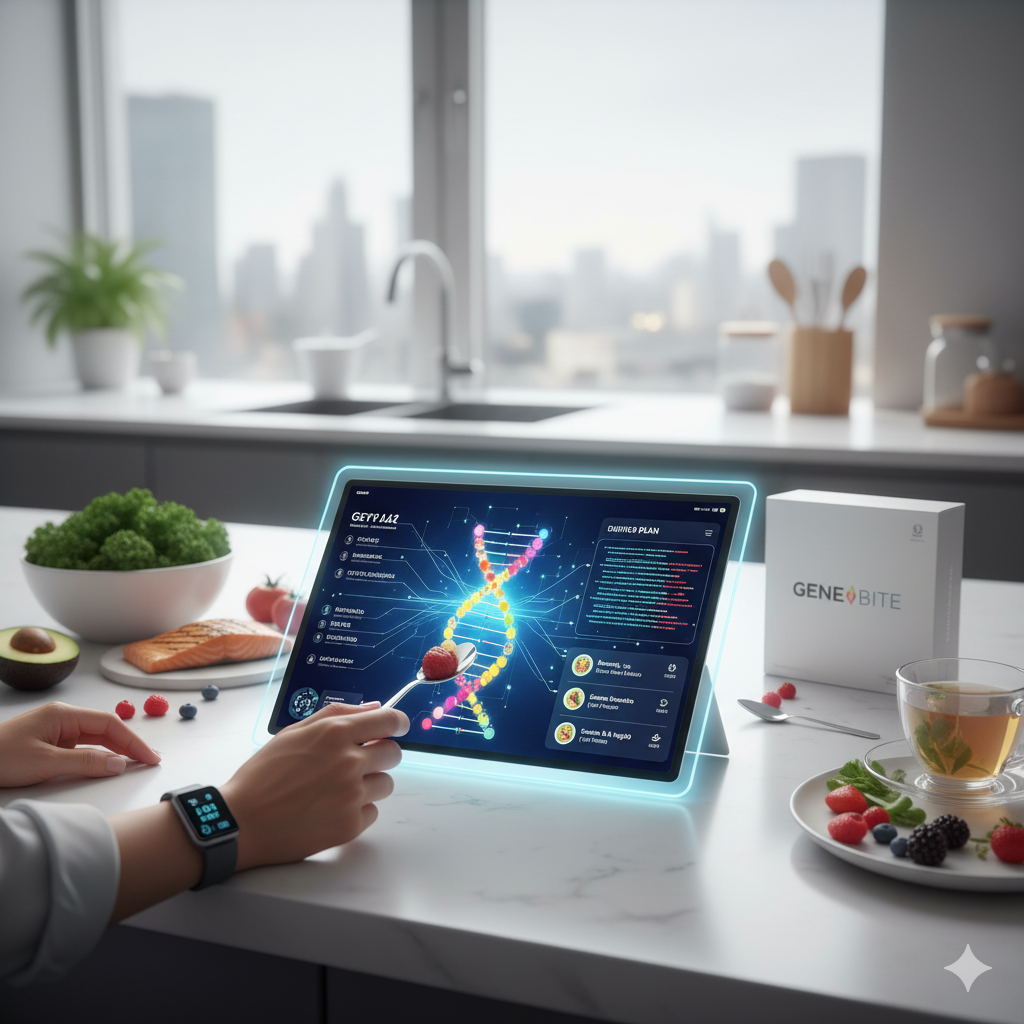The era of the “one-size-fits-all” diet is dead. For decades, we’ve cycled through low-fat, low-carb, Mediterranean, and Paleo, only to be left with the frustrating realization that what works for one person can utterly fail the next. The solution, we’re told, lies within our own biological blueprint: Our DNA.
Personalized nutrition, or nutrigenomics, is the fast-growing field that promises to end the guesswork by offering dietary advice tailored to your unique genetic code. But is your genome truly the cheat code to a perfect diet, or is this the next wellness trend that overpromises and under-delivers?

The Promise: What Your Genes Can Tell Your Plate
Personalized nutrition is built on the science of how your body processes specific nutrients based on its genetic variations. These tiny differences—often Single Nucleotide Polymorphisms (SNPs)—determine how efficiently you metabolize everything from caffeine to carbohydrates.
Here are a few fascinating examples of what a DNA-based report can reveal:
- The Caffeine Slow-Lane: The CYP1A2 gene affects how quickly you metabolize caffeine. If you have the “slow” variant, that afternoon latte might linger in your system for hours, disrupting sleep and making you feel jittery. A personalized plan recommends strict morning-only consumption.
- The Fat Metabolism Indicator: Variants in genes like FTO (often dubbed the “obesity gene”) don’t doom you to weight gain, but they might indicate that your body responds much better to a diet higher in protein and lower in saturated fat than the general population.
- Lactose Intolerance Prediction: The LCT gene (lactase) can confirm if you have the genetic predisposition to lose the ability to digest milk sugars after childhood.
The promise is clear: By knowing these tendencies, you can craft a diet that works in harmony with your biology, leading to better adherence, more successful weight management, and improved health outcomes. In fact, some studies show that individuals on a genetically tailored diet tend to stick with it better than those following general advice.
The Reality Check: Why Your DNA is Not the Whole Story
While the promise of nutrigenomics is electrifying, it is crucial for consumers to separate the robust science from the marketing hype, especially when looking at direct-to-consumer (DTC) genetic testing kits.
1. Genetics Are Only the Foundation
Your DNA is not a diet dictator; it’s a predisposition map. The vast majority of common health conditions—like obesity, heart disease, and diabetes—are polygenic, meaning they are influenced by hundreds of genes, not just one or two.
More critically, lifestyle and environment are the builders of the house. You can have the “perfect” genetic profile for optimal health, but poor sleep, chronic stress, inactivity, and environmental toxins can override those benefits completely.
2. The Interpretation Problem
The greatest challenge facing personalized nutrition today is interpretation. A consumer kit can tell you that you carry the FTO variant, but without the expertise of a registered dietitian trained in Nutrigenomics, that raw data is useless—or worse, misleading.
Many DTC companies test only a limited number of SNPs and offer generalized, algorithm-driven advice. A qualified specialist, however, takes the genetic data and combines it with:
- Phenotype Data: Your current height, weight, blood pressure, and lab results.
- Behavioral Data: Your stress levels, sleep quality, and exercise routine.
- Microbiome Data: The composition of your gut bacteria, which is proving to be as important as your DNA.
The Future of the Personalized Plate
The next evolution of personalized nutrition will look less like a single DNA test and more like a continuous monitoring ecosystem driven by Artificial Intelligence (AI):
- AI Integration: Future wellness apps will combine your genetic profile with real-time data from wearable devices (sleep, stress, heart rate) and continuous glucose monitors (CGMs).
- Contextual Recommendations: The recommendation won’t be “Eat fewer carbs.” It will be: “Your stress levels spiked today, and your CYP1A2 gene suggests you metabolize caffeine slowly. Opt for a magnesium-rich, high-fiber snack instead of that 3 PM espresso.”
- Inclusivity: The industry is actively working to address the current issue where most genetic data is derived from populations of European descent. Future research will focus on genetic variants unique to diverse populations to ensure personalized nutrition benefits everyone.
Takeaway for Your Health:
If you are considering a DNA-based diet plan, use the genetic report as a sophisticated piece of self-awareness—not a rulebook. Consult with a qualified health professional to integrate the genetic insights with the non-negotiable pillars of health: sleep, stress management, movement, and eating real, whole foods.
Your genes set the stage, but your daily choices write the script.
Leave a Reply